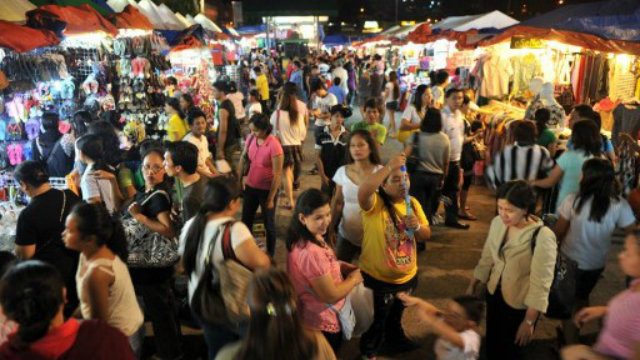SUMMARY
This is AI generated summarization, which may have errors. For context, always refer to the full article.

MANILA, Philippines – If prices of goods and services become “exorbitant” because of the tax reform law, a labor union would file another petition for a wage hike despite the one-year ban.
“We will indeed file a petition for wage increase if there is an extraordinary increase in prices of basic commodities such as rice, fish, vegetables and if there is an excessive surge in the cost of services such as transport fare, tuition fees, electricity and water rates,” said ALU-TUCP spokesperson Alan Tanjusay on Wednesday, January 3.
Wage increase orders had been issued in several regions in 2017. This included the P21 increase for Metro Manila minimum wage earners, which labor groups slammed as “measly.”
Under the Revised Rules of the National Wages and Productivity Commission (NWPC), no wage petition will be entertained for one year upon the effectivity of a wage order.
“If the situation warrants, we will file the petition for workers to cope with [the] rising cost of living even if the one year prescribed for no-wage-increase period set by the wage board is still in effect,” Tanjusay said.
ALU-TUCP, which also holds a seat in the House of Representatives, would file petitions in all regional wage boards or through emergency legislation.
Social protection
ALU-TUCP earlier called on the government to implement better social protection policies in order to shield the poor from inflationary effects of the Tax Reform for Acceleration and Inclusion (TRAIN) law.
Figures from the Philippine Statistics Authority (PSA) as of December 2017 show that there are about 2.4 million unemployed persons. There are also an estimated 15.6 million informal sector workers.
Informal sector workers – composed mostly of independent small-scale distributors like sidewalk vendors, jeepney drivers, and small store owners – are the most vulnerable to price hikes because they have no access to social safety nets.
Since they do not have an employer and the financial means, they are unable to register for the Social Security System (SSS), PhilHealth, and Home Development Mutual Fund (Pag-IBIG Fund).
Presidential Spokesperson Harry Roque earlier said the government will be providing a P200 monthly cash voucher to the poorest of the poor.
The Department of Finance (DOF) allocated P1 billion to the Department of Social Welfare and Development (DSWD) for this subsidy. But no implementation guidelines have been released to date. – Rappler.com
Add a comment
How does this make you feel?
There are no comments yet. Add your comment to start the conversation.